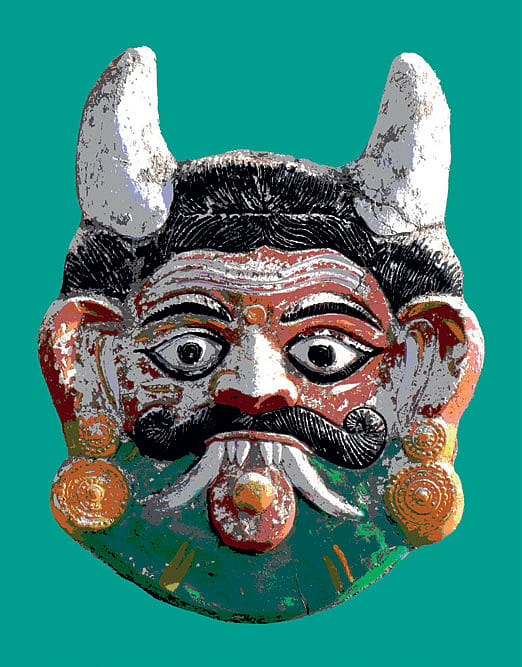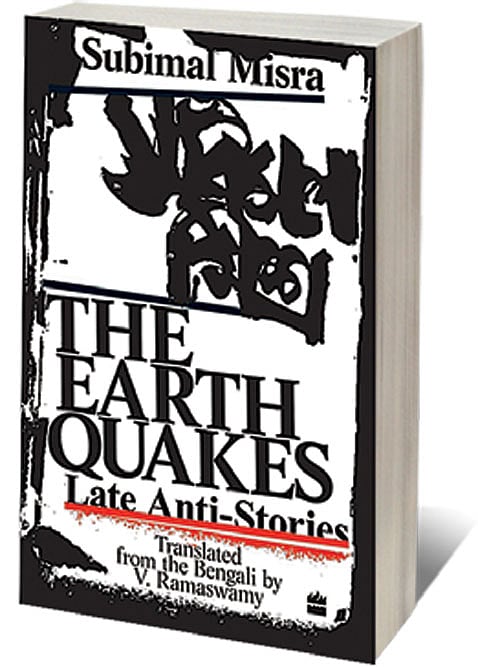Subversive Flair

MOST OF US, over the many centuries that books have been in existence, have grown conditioned to a certain style that we expect from stories. A build up, a climax, a satisfying end. Character development, plot, coherence. A logical framework, which can entertain or provoke thought, or inform, or all of these. Every now and then, though, there are maverick writers who refuse to follow the rules: writers who upend our ideas of how a story should read.
Bengali writer Subimal Misra (1943-2023) was one of these, and The Earth Quakes, a translation (by V Ramaswamy) of 20 of his later stories, written between 1991 and 2010, is a striking showcase of Misra’s prowess as a writer—and his complete disregard for the conventions. If a rule can be broken, if an expectation shattered, Misra does not shy away from doing so.
Consider most of the stories in this book, nearly all of which are not one story, but several narratives, told simultaneously, alternately. Midway through a paragraph, one narrative switches to another, and then another. Different characters, different plots, coming and going, circling back. There are snippets from newspapers and publications (some possibly fictional?). There are verses. There are wildly varying font sizes, word art. Three rectangles, for example, the width of their enclosing lines differing, interrupt the text every now and then in ‘The Hand—Rough, Severe, Blazing with Resolve’. The titles of the stories are often unwieldy, sample this, ‘Holding Capacity Even in Intimate Entry’, ‘Swaramelakalanidhi—The Treasured Art of Vocal Harmony’. And as a reader you wonder what is happening.
AIming High
20 Feb 2026 - Vol 04 | Issue 59
India joins the Artificial Intelligence revolution with gusto
In some stories, like the relatively straightforward ‘Madankatkati — Crunchy-Crispy Passion’, about an impoverished and desperate couple who end up turning their home into a mini brothel, it’s not too difficult to see the point. ‘Nappy Change’, a violent story that begins with the rape and murder of a young woman (the Singur case of 2008) is a hard-hitting look at sexual aggression and power politics. ‘A Green-Coloured Asur at the Idol under a Single-Roofed Pavilion and Below, Placed Visibly, the Symbolic Bride Made up of Nine Leaves’, is a story masquerading as an essay on much that plagues modern India.
In other stories, what Misra is trying to say is rather less obvious. What is Tarzan doing on a ship called Mother India, where an elderly man, bare-chested and bespectacled, is brutally murdered and says, “Hey Ram” as he’s dying? What is the high-adrenaline boxing match of the title story really about?
In ‘A Green-Coloured Asur’… Misra writes (again and again): “My writing is not suitable for whiling away time or to read in bed before falling asleep…. I have faith in those readers of mine… who are questioning, who are keen on thinking, who are prepared for mental toil. It’s them that I keep in mind when I write…”
This is the crux of the matter, the essence of Misra’s writing: it is not supposed to be spoon-fed to a reader. You are not told this is how it is; this, in so many words, is what I want you to think. Instead, each story is a challenge, Misra is sometimes annoying, at others obtuse, sometimes illusive, at others playful. Always, though, he makes his reader work to understand. Even when—as in ‘The Great Renunciant’ or ‘Of the Right Size’—the story seems straightforward enough, a canny reader will probably be trying to read between the lines, to get at what Misra might be saying. But is your conclusion the correct one? Is mine? Or could we both be correct?
This is what makes Misra so memorable a storyteller: he makes his reader think, he shows us the truth (and the possible truths) in ways most other writers would either shy away from or not know how to do. Read this book only if you are prepared for a slog, and are ready to think.

